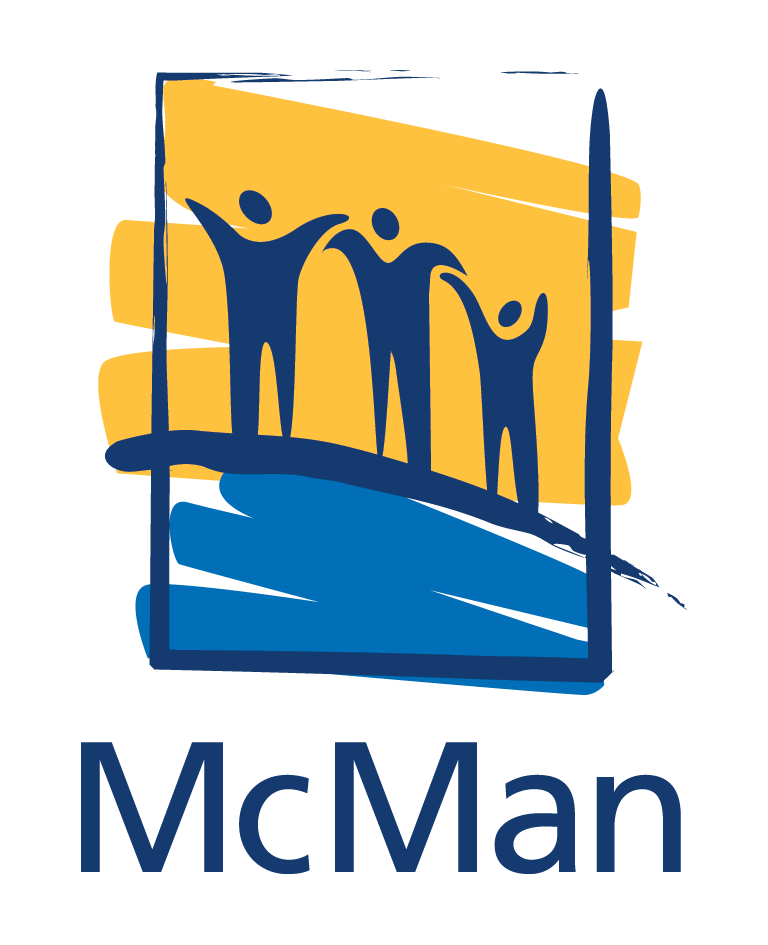Frequently Asked Questions
McMan’s focus on career development will benefit everyone:
- Staff can grow and advance their career here at McMan;
- McMan will be able to promote more, recruit less, and have more qualified and capable
employees; and - The people we serve will benefit from better trained staff and more qualified managers.
There is a probationary period for all new employees at McMan. We want you to feel grounded in the culture at McMan and feel confident in your role before you choose to join leadership development. The program will be available to you once you have been employed for six months.
It’s up to you how quickly you progress in your career, but your progress will depend largely
on your willingness to:
- request feedback and accept it with gratitude;
- act on it; and,
- take advantage of opportunities to broaden your experience.
Your Career Coach will work with you to help identify your strengths, development needs, career objectives, and creative development activities to achieve your career objectives. They will also encourage you and help keep you accountable to your career development commitments.
It is important to remember that career advancement does not necessarily mean vertical progression (promotion). In many cases, staff with the most breadth of experience are among the most diversely skilled. Often, the best way to advance your career is to take assignments in a different area where you can apply your strengths in a different context and learn new skills. Sometimes this even means taking a perceived step backwards.
Typically, as staff move into Leadership positions in the organization, they play more of a generalist role than a specialist, which means they need a diversity of experiences and skills.
Absolutely. The Career Development program is for anyone who wants to develop themselves professionally. We need specialists and versatile generalists in addition to strong leaders. All staff will have the opportunity to have regular career development discussions with a Career Coach if they wish.
People deserve more financial compensation when they are delivering more value. When people are learning new responsibilities, they are not providing more value. In fact, the reason we use the term “investing in our people” is because developing our people costs time and money, which we’re happy to do. Your investment is the time and effort it will take to become proficient at more complex work.
A key responsibility of every leader is to develop the people they work with. It is much easier to promote someone who has prepared others to replace them. Given the choice between two equally qualified candidates for promotion, the one who has prepared others to replace them will be selected for advancement sooner.
Managers are primarily responsible for helping staff improve their performance in their current role. Career Coaches have been provided to help staff prepare for the next step in their career (either laterally or vertically).
A general guideline is that staff should speak to their manager if they need training to help them improve in their current position. Most career development activities discussed with your Career Coach will not require funding for training.
Nothing is guaranteed. A complete professional development plan and diversity in experience and skills will strengthen your chances as a qualified candidate. There is a decision making process to who is selected and as determined by the Leadership Development Committee (please see sections 5 & 6 of the Program Overview for a details about the committee’s role and a description of the selection process).
No. Leadership positions will continue to be posted internally for those that are currently already in a leadership role and may want to change positions (laterally) and for those who are currently in the Leadership Development Program pipeline.
No. Every career owner will have different goals. Some of these goals may take longer than other goals to achieve. As long as the career owner is moving forward with their PDP they will be able to work with their coach.
It is important for all career owners to talk to their coaches about setting clear development goals with realistic timelines. Honest conversations up front about what a successful coaching outcomes look like will help determine how long the coaching relationship should last.


